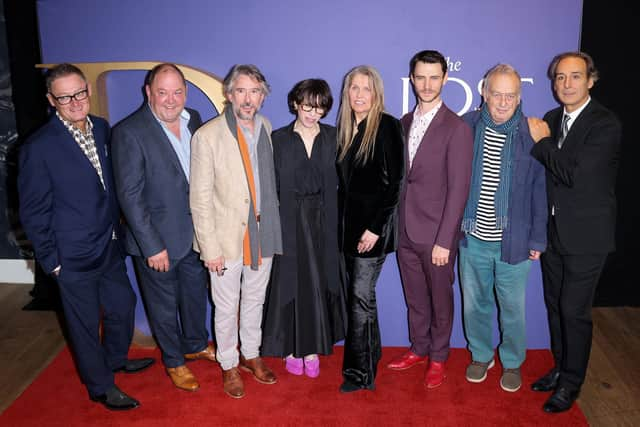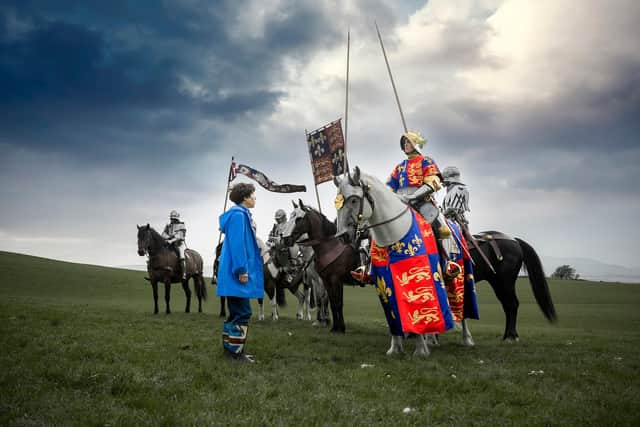The Lost King: The Edinburgh mother who helped discover the remains of Richard III and a controversial new film
and live on Freeview channel 276
Now the remarkable story of Philippa Langley and her determination to find the remains of Richard III and restore his reputation comes to the big screen this week, with the move appearing to split opinion as much as the king himself.
The Lost King, which was shot in Edinburgh and Midlothain, tells the story of Ms Langley, who was dealing with the breakdown of her marriage and coping with the debilitating effects of ME when she pledged in 2009 at the Cramond Inn, at a meeting of the Boar and Saltire – the Scottish branch of the Richard III society – to find the lost grave of the last Plantagenet king.
Advertisement
Hide AdAdvertisement
Hide AdRichard III’s reputation as a hunchbacked man of darkness who killed his young nephews to take power has been fuelled by Tudor propaganda and Shakespeare.
Driven by a sense of injustice shared by Langley and her fellow Ricardians, her extraordinary dedication led her to identify the spot where Richard III was buried underneath a carpark in Leicester.
What followed has been described as the most famous dig since Tutankhamun, with Langley joining a team of archaeologists from University of Leicester as they found a skeleton that was then identified as the king’s through months of DNA testing and analysis.
Here indeed was The Lost King, with the finding Richard III had a curved spine, not a hunchback, starting to correct the narrative.


Advertisement
Hide AdAdvertisement
Hide AdLangley, played by Sally Hawkins, has described the film as “her story”. The narrative of the film pits her struggle to be heard against the authority of stuffy, sniffy, male-heavy academia. In an interview, she said her role in finding Richard III had been “greatly diminished”.
“I’d done the research,” she said. “I funded the dig and commissioned it. I didn’t really understand why they needed to do that to me. I used to be on friendly terms with the archaeologist.”
Richard Taylor, then deputy registrar of the university who planned the excavation, has taken legal advice given his portrayal in The Lost King, written and directed by Steve Coogan, as a “patronising misogynist”, with the university painted as sexist and dismissive of women. He described the film as “reckless and quite hurtful” and claimed it had airbrushed the critical work of several senior female academics.


The university has also denied claims Langley funded the dig, although she was responsible for funding the early work.
Advertisement
Hide AdAdvertisement
Hide AdThis week, a university statement said: “The university made an offer to The Lost King production team, in good faith, to help it establish the correct factual basis of the project that discovered and identified Richard III. This offer was not taken up.
“Philippa Langley showed great tenacity and determination to also crowdsource funding from the Richard III Society to contribute to the fund required for the initial exploratory dig. The university paid for the majority of the excavation and the entirety of the post-excavation costs. The university has financial records to back this up.”
This weekend, Langley will speak at the AGM of the Richard III Society in Leicester with Dan Winch, producer of The Lost King, the story of Richard III’s discovery far from being at rest.
Comment Guidelines
National World encourages reader discussion on our stories. User feedback, insights and back-and-forth exchanges add a rich layer of context to reporting. Please review our Community Guidelines before commenting.
